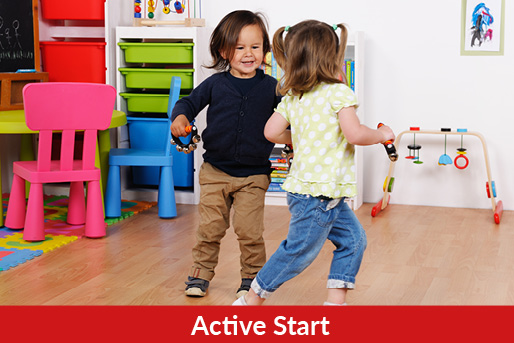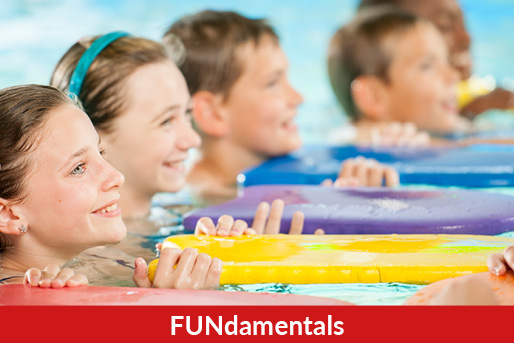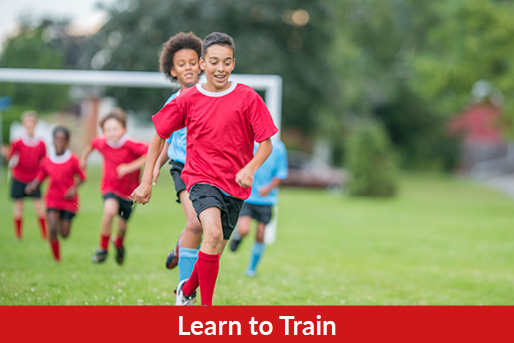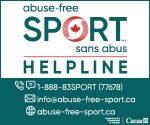Definition of Physical Literacy
“Physical literacy is the motivation, confidence, physical competence, knowledge, and understanding to value and take responsibility for engagement in physical activities for life.”
– The International Physical Literacy Association, May 2014
Physical activity is a lot more fun when we’re physically literate. If we want children to be active for life, ideally they will need to develop physical literacy at a young age during the early stages of Long-Term Athlete Development: Active Start, FUNdamentals, and Learn to Train. Physicalliteracy.ca offers coaches, recreation professionals, and health practitioners access to a wide range of resources that can help people become physically literate.
The Elements of Physical Literacy
Motivation and Confidence (Affective)
Motivation and confidence refers to an individual’s enthusiasm for, enjoyment of, and self-assurance in adopting physical activity as an integral part of life.
Physical Competence (Physical)
Physical competence refers to an individual’s ability to develop movement skills and patterns, and the capacity to experience a variety of movement intensities and duration’s. Enhanced physical competence enables an individual to participate in a wide range of physical activities and settings.
Knowledge and Understanding (Cognitive)
Knowledge and understanding includes the ability to identify and express the essential qualities that influence movement, understand the health benefits of an active lifestyle, and appreciate appropriate safety features associated with physical activity in a variety of settings and physical environments.
Engagement in Physical Activities for Life (Behavioural)
Engagement in physical activities for life refers to an individual taking personal responsibility for physical literacy by freely choosing to be active on a regular basis. This involves prioritizing and sustaining involvement in a range of meaningful and personally challenging activities, as an integral part of one’s lifestyle.
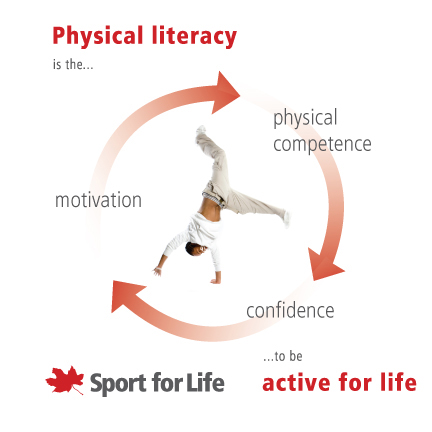
Learn more at Physicalliteracy.ca and download the Physical Literacy Consensus Statement.


